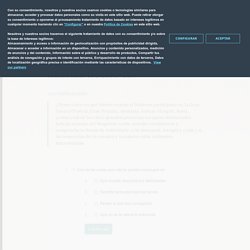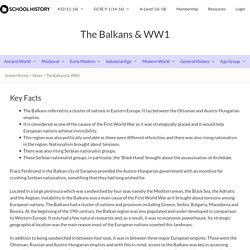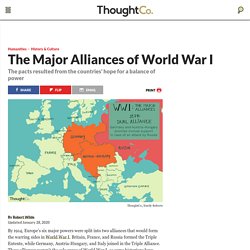

Trivial 1ª Guerra Mundial: El juego diplomático. Con su consentimiento, nosotros y nuestros socios usamos cookies o tecnologías similares para almacenar, acceder y procesar datos personales como su visita en este sitio web.

Puede retirar otorgar su consentimiento u oponerse al procesamiento tratamiento de datos basado en intereses legítimos en cualquier momento haciendo clic en "Configurar" o en nuestra Política de Cookies en este sitio web. Youtube. Trench Systems (Cross Section) World War I Quiz. First World War Quiz: Test Your Knowledge On WW1. World War I (1914–1919): Quiz. The Experience of World War One: ActiveHistory. This unit forms part of the World War One materials at ActiveHistory: Causes of World War One Life in the Trenches in World War One Causes for Germany's Defeat in World War One Remembrance Day: Activities for all Year Groups Battlefields Trip: itinerary, workpack and follow-up activities Origins of WW1 and WW2: Comparisons and Contrasts Decision-Making Simulation: Can you survive life in the trenches?

"In this simulation you will be a British soldier who joins the army in 1914 to fight the Germans. Life in the Trenches! Timeline Activity Students should then move on to produce a timeline of the Western Front using this excellent animation from the BBC. Web Research Task I then get students to produce a PowerPoint Presentation for the class based on a key theme of trench warfare using the BBC Flash Movies.
Propaganda and Censorship Propaganda and Censorship: How did the British government respond to the recruitment crisis? Over The Top. Apocalypse WWI / Part 3 of 5 "Hell" Origins: Rap Battle - WW1 Uncut - BBC. (29) The Assassination of Franz Ferdinand. World War 1 (in One Take) Finding causes of World War One in cartoons - GCSE History. Did Franz Ferdinand’s Assassination Cause World War I? - HISTORY. The causes of World War I, also known as the Great War, have been debated since it ended.

Officially, Germany shouldered much of the blame for the conflict, which caused four years of unprecedented slaughter. But a series of complicated factors caused the war, including a brutal assassination that propelled Europe into the greatest conflict the continent had ever known. The murder of Archduke Franz Ferdinand outraged Austria-Hungary.In June 1914, Austrian Archduke Franz Ferdinand and his wife Sophie traveled to Bosnia—which had been annexed by Austria-Hungary—for a state visit. On June 28, the couple went to the capital city of Sarajevo to inspect imperial troops stationed there. As they headed toward their destination, they narrowly escaped death when Serbian terrorists threw a bomb at their open-topped car. Within days, Germany declared war on Russia—Serbia’s ally—and invaded France via Belgium, which then caused Britain to declare war on Germany. Impact, Cause & Political Information. The Balkans referred to a cluster of nations in Eastern Europe.

It lay between the Ottoman and Austro-Hungarian empires.It is considered as one of the causes of the First World War as it was strategically placed and it would help European nations achieve invincibility.This region was also politically unstable as there were different ethnicities and there was also rising nationalism in the region. Nationalism brought about tensions.There was also rising Serbian nationalist groups.These Serbian nationalist groups, in particular, the ‘Black Hand’ brought about the assassination of Archduke.
Franz Ferdinand in the Balkan city of Sarajevo provided the Austro-Hungarian government with an incentive for crushing Serbian nationalism, something that they had long wished for. In addition to being sandwiched in between four seas, it was in between three major European empires. The Major Alliances of World War I. By 1914, Europe's six major powers were split into two alliances that would form the warring sides in World War I.

Britain, France, and Russia formed the Triple Entente, while Germany, Austria-Hungary, and Italy joined in the Triple Alliance. These alliances weren't the sole cause of World War I, as some historians have contended, but they did play an important role in hastening Europe's rush to conflict. The Central Powers Following a series of military victories from 1862 to 1871, Prussian Chancellor Otto von Bismarck formed a German state out of several small principalities. After unification, Bismarck feared that neighboring nations, particularly France and Austria-Hungary, might act to destroy Germany.
The Dual Alliance Bismarck knew an alliance with France wasn’t possible because of lingering French anger over Alsace-Lorraine, a province Germany had seized in 1871 after defeating France in the Franco-Prussian War. Bismarck turned to Austria-Hungary and Russia. e2 answers. Curriculum Unit 2 World War One. Apocalypse WWI / Part 3 of 5 "Hell" Apocalipsis - La Primera Guerra Mundial - Episodio 3 Infierno. Trench Systems (Cross Section) Trench Systems (Cross Section) 357 Best Modern History (XXth Century) images.